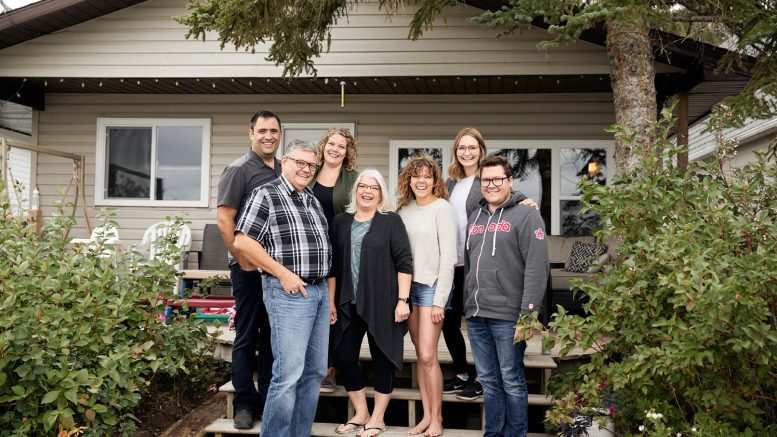The National Film Board of Canada (NFB) kicked off Francophonie Month on March 1 by streaming Fransaskois singer-songwriter and filmmaker Alexis Normand’s 18-minute film French Enough.
The film is set at Normand’s family cabin near Wakaw Lake, Sask., where she and her family unpack the struggles and triumphs of reclaiming francophone Canadian identity on the prairies with one anglophone parent and one assimilated parent of French descent.
Normand first pitched the film in 2019 with an accompanying album in mind. The film was originally released in 2022, and the album will be released later this year.
“I knew I wanted to do a film about francophone identity, specifically the experiences that I know as a francophone, and looking into the tension points and the weird shame or insecurities around language,” Normand said.
She had pitched the project to the Rendez-vous de la Francophonie (RVF), which has connections to the NFB. The RVF is a cultural event celebrating International Francophonie Day, a day that promotes the French language and its diversity across the globe.
The pieces fell into place after the proposed film resonated with NFB department representatives.
“I was so nervous,” Normand said. “It was my first time I was sharing my new songs and this film with people I didn’t know and it went really, really well. A lot of people cried, a lot of people saw themselves, I cried — it was very validating and I’m like, ‘okay, my idea’s good.’”
The film extends itself to deeper conversations being had in francophone communities, such as those about exogamous structures — where each parent comes from a different cultural background — as well as “l’insécurité linguistique.”
“It’s literally insecurities about the way I speak — my accent, the regional expressions I use, sometimes I’m second guessing how I conjugate verbs, it’s that,” Normand explained. “It’s not feeling comfortable speaking French.”
She added that, while this is an issue that a lot of people talk about in francophone communities, she has never seen it explored in a familial context.
Part of the process of making this film involved Normand unpacking uncomfortable feelings.
“I felt shame, and I had to hide the fact that we speak English at home,” she said.
“In my professional world or in my outside world, especially when I was navigating francophone spaces, I identify as francophone, but I always had this resistance because my family doesn’t correspond to that traditional model of what francophone looks like.”
Normand wanted the film to express the idea that, though some aspects of her story are unique, it is also a story that reflects the situations of several families within the community.
“There are a lot of families, and it’s not just exogamous English-French, there’s bicultural families, there are families who are learning French or who know French as a third language,” she said. “It opens the door to that, to those experiences, because they’re just as valid as the traditional model of what Francophonie is ‘supposed’ to look like.”
“I wanted to validate those realities and also the struggle.”
Normand hopes that viewers gain a new understanding of what a different version of francophone life can look like, the inner workings of a bilingual or multicultural family and the complexity of these kinds of identity journeys.
French Enough is available to stream for free on NFB’s website.


